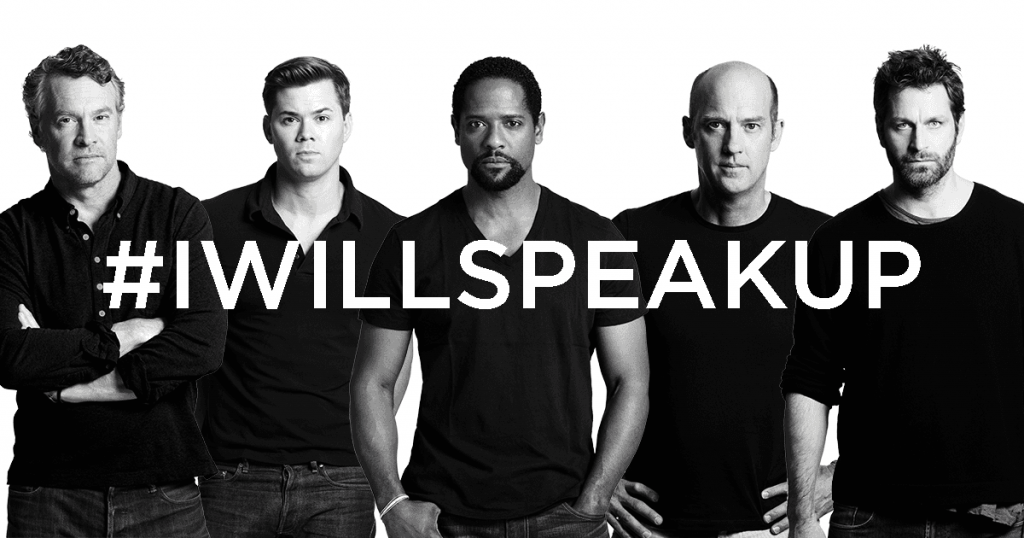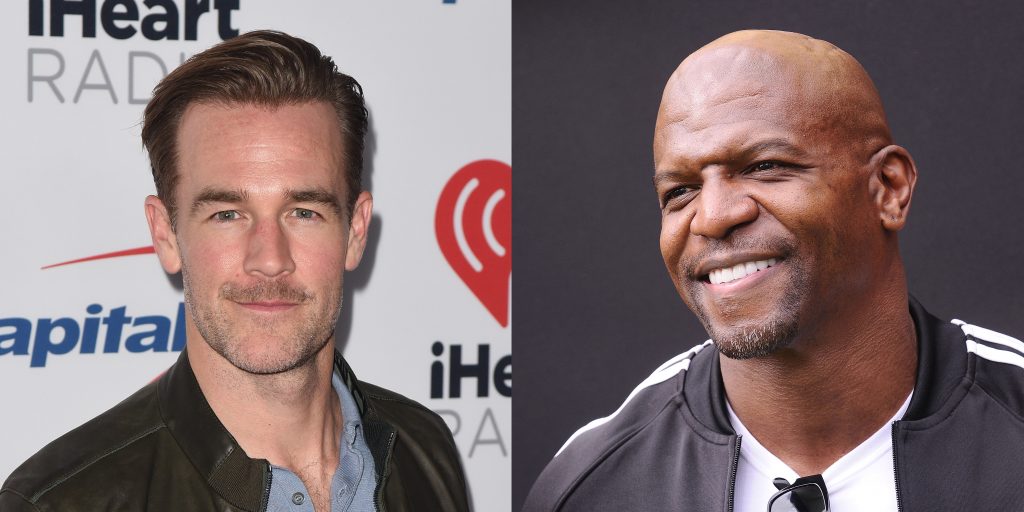“Violence against women – it’s a men’s issue.” – Jackson Katz, TED Talk
It’s important to focus on the how when it comes to the conversation of including men in the dialogue for #MeToo. The truth is, in order for substantial social change to take root both parties need to use their voices to influence and to become part of the solution.
A crucial and under-reported reality of the #MeToo viral episode in October is the fact that it wasn’t just women who shared experiences of sexual harassment – men also took to social media to share their own experiences of assault. Director and actor Alex Winter posted the hashtag writing: “While my story isn’t public, those that need to know are aware. But speaking up wasn’t easy so please listen, acknowledge & accept.” Actor Terry Crews also shared his story of being groped by a “high-level Hollywood executive” at an industry function in 2016. While Crews said he reached out to colleagues he decided not to “take it further” out of fear of being “ostracized.” And they’re not alone, a new landmark study looking at sexual harassment and assault in the U.S. revealed 81% of women and a stunning 43% of men reported experiencing sexual misconduct in their lifetime. The revelation is crucial because historically people perceive sexual harassment and domestic violence as women’s issues, but perhaps it is necessary for a change in the framing of the #MeToo movement to illuminate that it is indeed a men’s issue as well.
A crucial and under-reported reality of the #MeToo viral episode in October is the fact that it wasn’t just women who shared experiences of sexual harassment – men also took to social media to share their own experiences of assault. Director and actor Alex Winter posted the hashtag writing: “While my story isn’t public, those that need to know are aware. But speaking up wasn’t easy so please listen, acknowledge & accept.” Actor Terry Crews also shared his story of being groped by a “high-level Hollywood executive” at an industry function in 2016. While Crews said he reached out to colleagues he decided not to “take it further” out of fear of being “ostracized.” And they’re not alone, a new landmark study looking at sexual harassment and assault in the U.S. revealed 81% of women and a stunning 43% of men reported experiencing sexual misconduct in their lifetime. The revelation is crucial because historically people perceive sexual harassment and domestic violence as women’s issues, but perhaps it is necessary for a change in the framing of the #MeToo movement to illuminate that it is indeed a men’s issue as well.
Author and educator Jackson Katz offered a suggestion in the change of the framing: “Instead of focusing on men as perps and women as victims – or women as perpetrators and men as victims, or any combination – it focuses on everybody in a given peer culture as what we call a bystander, which is a friend, a teammate, classmate, a colleague, a co-worker.” While, I don’t agree with his statement of taking away the gender title in addressing #MeToo – since patriarchy and the power structures that mandate misogyny is a central force in the narratives of #MeToo – I do agree that there is a role to play in being an active bystander and responding to sexual violence.
Joyful Heart Foundation and A CALL TO MEN, a violence prevention organization, partnered to launched the #IWILLSPEAKUP campaign – a movement specifically asking men to support survivors of sexual assault, abuse, and harassment by speaking up. According to A CALL TO MEN cofounder Ted Bunch, “Only men can end men’s violence against women.” Bunch said until men are aware and understand that “they are the solution” they can then “turn that awareness into action and that action into lasting change as we create the next generation of manhood.”
Leading Hollywood men Andre Braugher, Tate Donovan, and Anthony Edwards are at the forefront of the pledge starring in a PSA titled “I’ll say something next time.” Though there’s no denying how imperative it is for women to lead and spearhead the conversation of #MeToo, it’s crucial that the movement incorporates male activists in their network because both parties are needed in establishing lasting social change. Male colleagues need to know the importance of the #MeToo movement so that they can shoulder some of the work of stopping harassment and do their part to de-normalize a culture of sexual harassment at work.
Joyful Heart Foundation and A CALL TO MEN, a violence prevention organization, partnered to launched the #IWILLSPEAKUP campaign – a movement specifically asking men to support survivors of sexual assault, abuse, and harassment by speaking up. According to A CALL TO MEN cofounder Ted Bunch, “Only men can end men’s violence against women.” Bunch said until men are aware and understand that “they are the solution” they can then “turn that awareness into action and that action into lasting change as we create the next generation of manhood.”
Leading Hollywood men Andre Braugher, Tate Donovan, and Anthony Edwards are at the forefront of the pledge starring in a PSA titled “I’ll say something next time.” Though there’s no denying how imperative it is for women to lead and spearhead the conversation of #MeToo, it’s crucial that the movement incorporates male activists in their network because both parties are needed in establishing lasting social change. Male colleagues need to know the importance of the #MeToo movement so that they can shoulder some of the work of stopping harassment and do their part to de-normalize a culture of sexual harassment at work.


 RSS Feed
RSS Feed